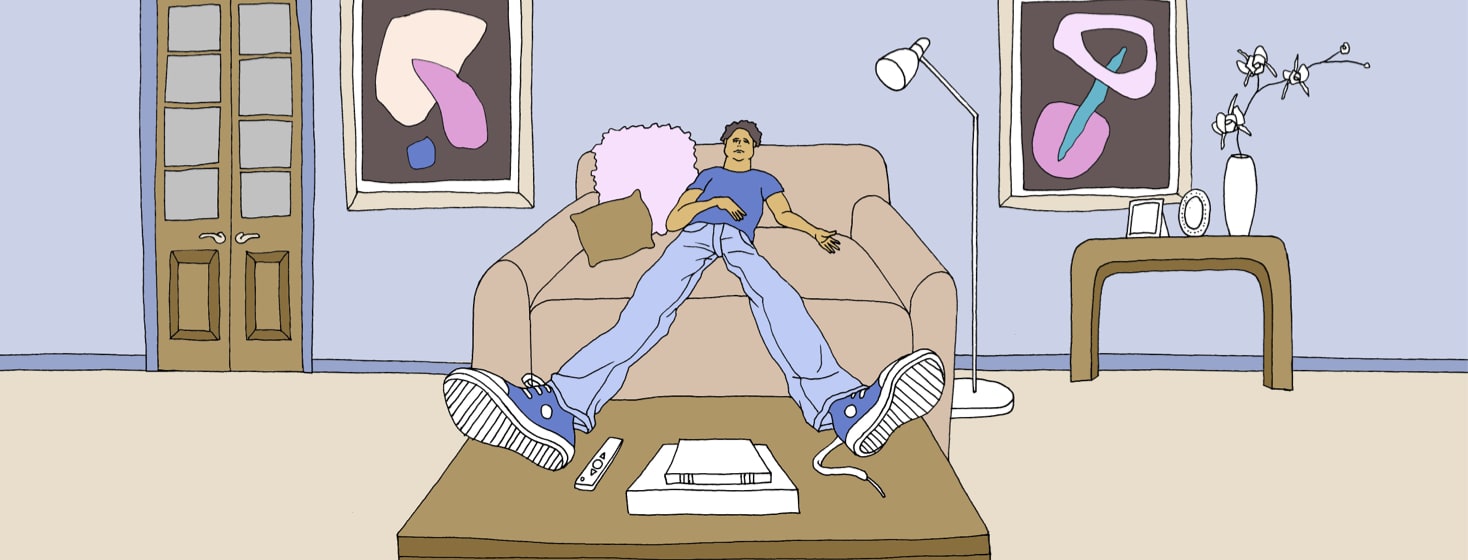Ways to Manage MG Fatigue
Reviewed by: HU Medical Review Board | Last reviewed: July 2024 | Last updated: August 2024
Fatigue is what doctors call feeling exhausted or lacking mental or physical energy. It may also mean you cannot continue activities as long as you would like. It is 1 of the most common symptoms of myasthenia gravis (MG).1
Up to 8 out of 10 people with MG have fatigue. It is more common in women with MG. MG-related fatigue:2
- Tends to get worse as MG becomes more severe
- Can continue even when other MG symptoms are in remission
Fatigue can greatly affect your quality of life. It is important that you find ways to manage and treat fatigue if you have MG.3
What causes fatigue in MG?
Doctors are not completely certain why people with MG tend to feel exhausted. But could be due to a combination of:1,3
- Inflammation
- Lack of sleep
- Depressed mood
- Pain
- Lack of physical activity
- Higher weight, if overweight
The overall exhaustion of fatigue is a separate symptom from the muscle weakness caused by MG. With MG, muscles can return to normal strength after rest. Fatigue may continue even after rest.1
Preventing MG fatigue
One of the best ways to treat MG fatigue is to take your medicines as prescribed. Studies show that having higher levels of the antibodies that cause MG was linked to feeling more exhausted.2
Exercise can be tricky to manage when you have MG. Your body needs physical activity to help you keep your joints and muscles healthy, control weight, boost energy levels, and improve mood. But, exercise that is too intense can make the muscle weakness worse, not better.1,3
For these reasons, doctors recommend regular, gentle exercise for people with MG. For example, 1 study found that people with MG reported less fatigue after riding a bike 3 times a week for 12 weeks.1
Cognitive behavioral therapy (CBT) is a type of counseling that teaches you how to think about situations differently and change your behavior. For example, CBT can teach you to:4
- Calm your body and mind
- Identify negative thoughts and replace them with positive ones
- Accept doing less or doing things differently
- Develop problem-solving skills
Studies show CBT can help people cope with fatigue and feel less tired.1
Treat depression
Depression is common in people with MG, especially in women with MG. Doctors know that the worse a person’s depression, the worse their fatigue. If you are depressed, talk to your doctor about treatment and where to find emotional support. Studies show that people with MG and depression felt less fatigue when their depression was controlled.2,3
Tips for managing MG fatigue
There are many ways to adjust your life to accommodate having less energy.3
Planning ahead can be a key way to manage MG fatigue. If you know you usually have more energy early in the day, plan to accomplish your most essential tasks then. If your energy holds up, great! You can accomplish things that are less important later in the day.3
Rest when you need to. If you find yourself getting tired, take a nap. Or put your feet up and read or listen to music. Some people find it helps to schedule rest breaks throughout the day.3
Eat a healthy diet. Your body needs nutritious foods to operate at its best.3
Explain your needs to family and friends. When planning activities with loved ones, let them know your needs. For example, you can explain that you will need a place to sit and breaks to rest while out walking. Or you may need to cancel plans at the last minute, depending on your energy that day.3
Practice good sleep habits. Some of the same things that help treat and manage fatigue also help you sleep better. These include regular exercise, a healthy diet, and managing your worries. Other things you can do to improve the quality of your sleep include:5
- Sticking to a regular schedule so your body expects to sleep and wake up at the same times.
- Making your bedroom restful by keeping it dark, cool, and quiet.
- Limiting daytime naps. You may need daily rest breaks, but too much sleep during the day can make it harder to sleep at night.
It may take time to find the combination of treatments and lifestyle changes that help you manage your fatigue. If you feel exhausted, resist the urge to push through it. Find strategies to help you do the things you enjoy while getting the rest you need.3

Join the conversation